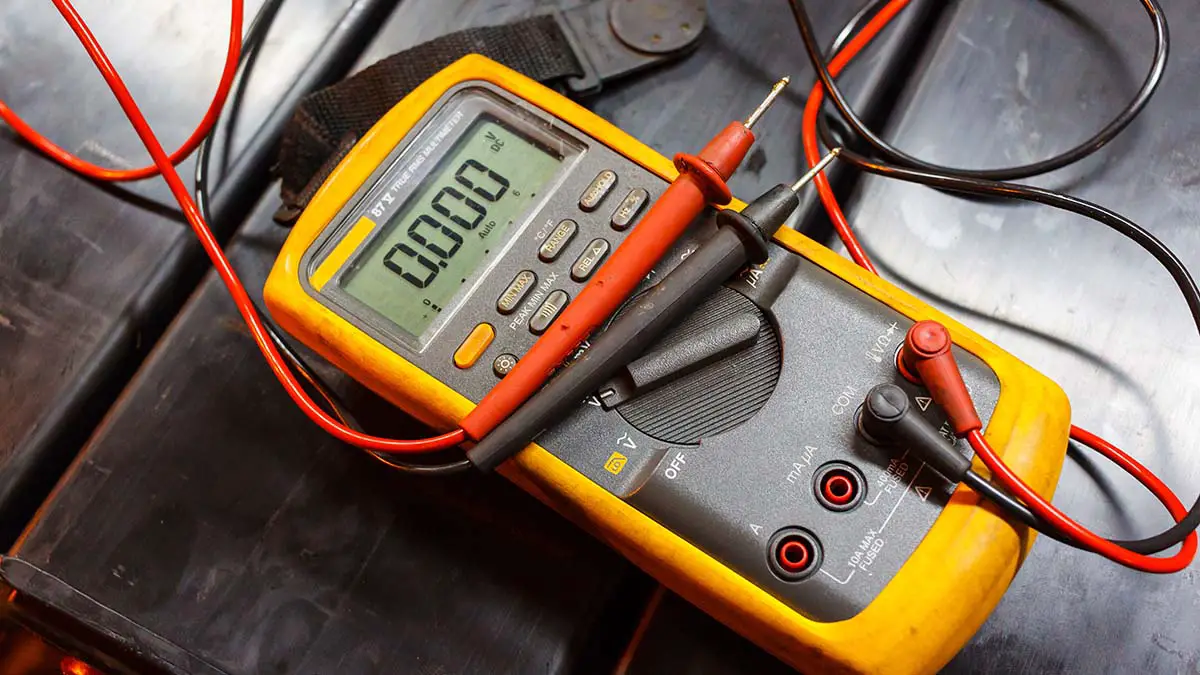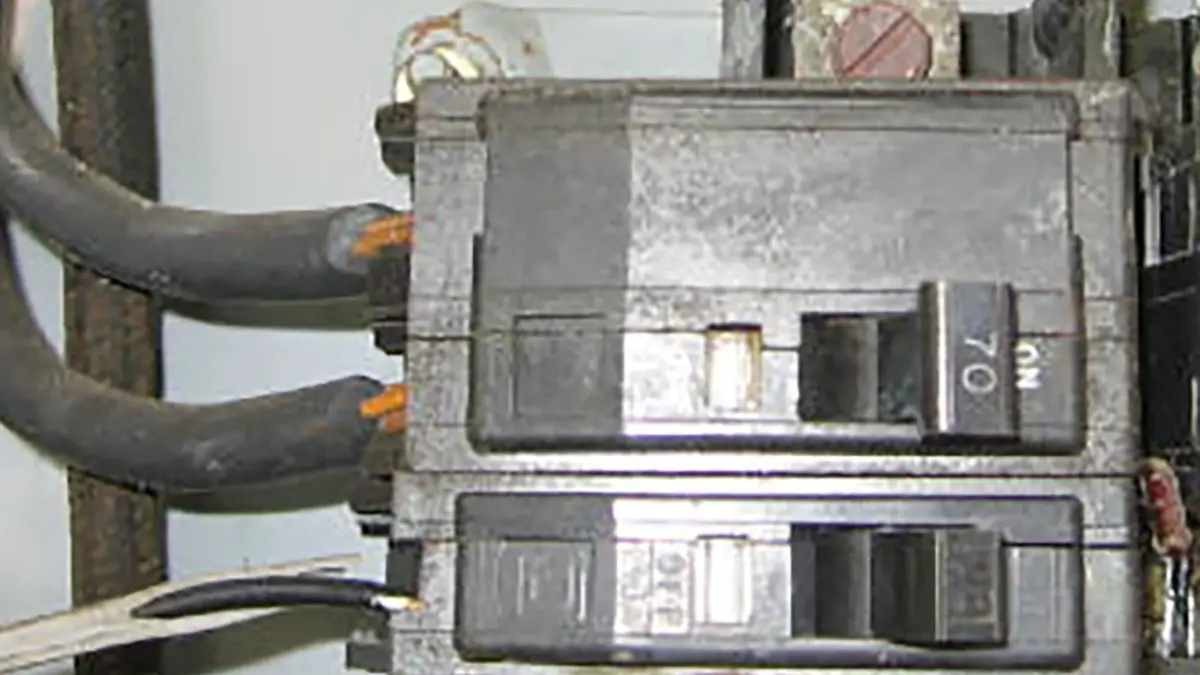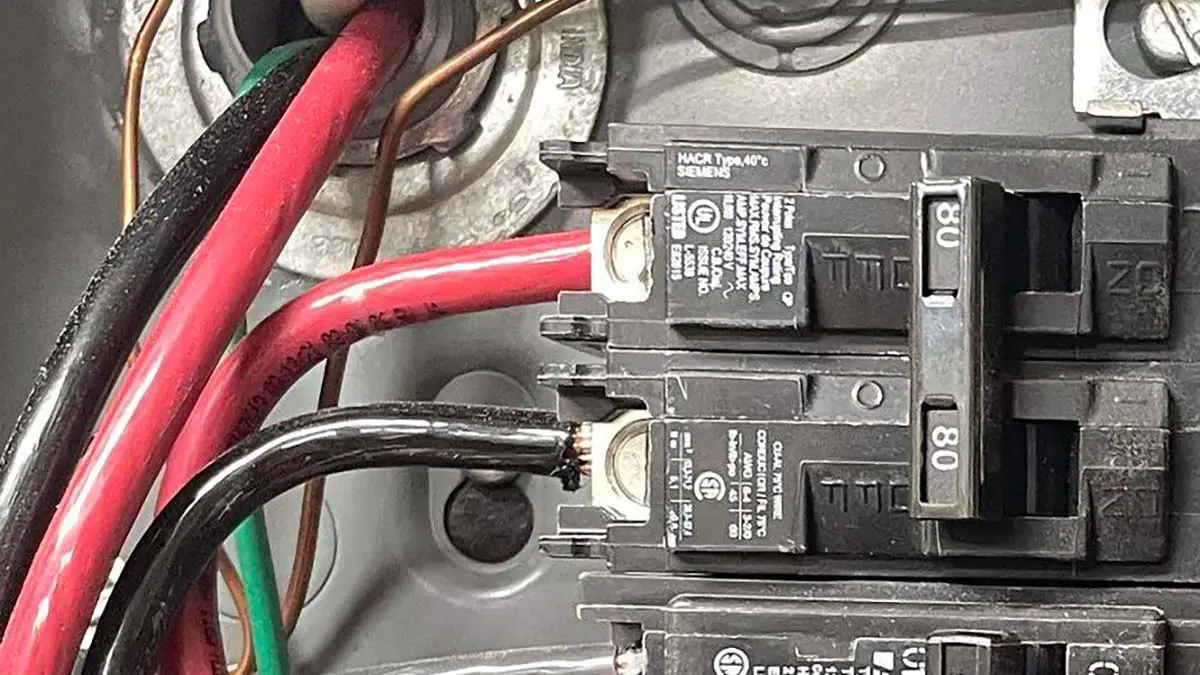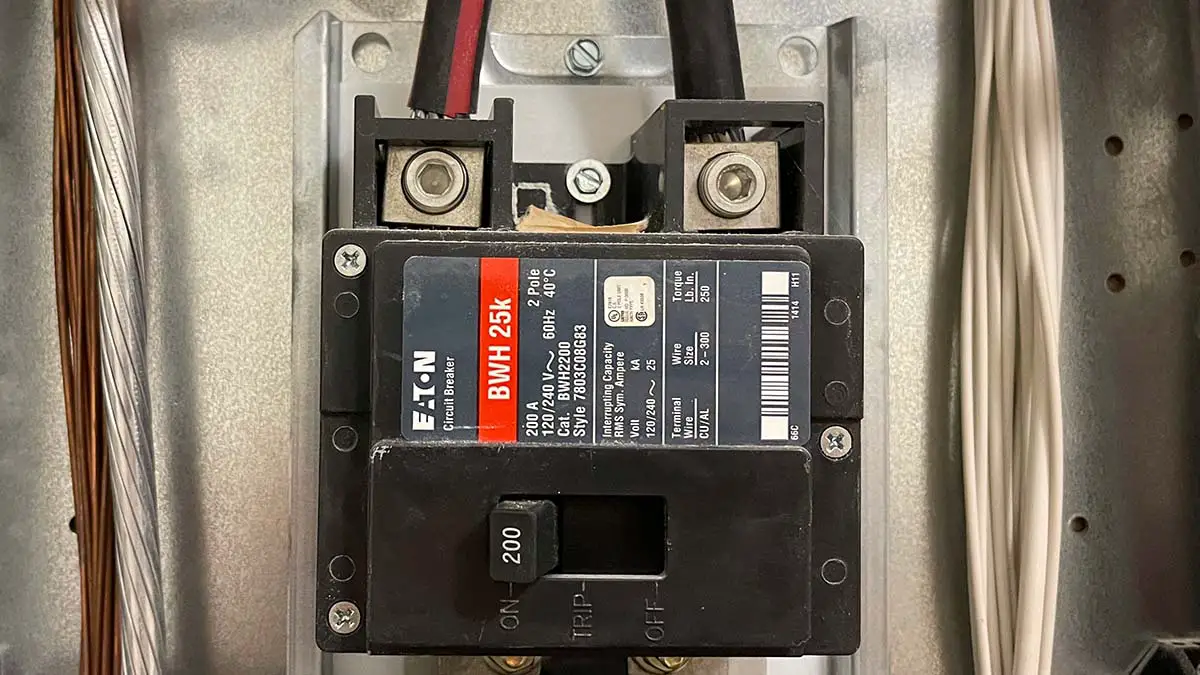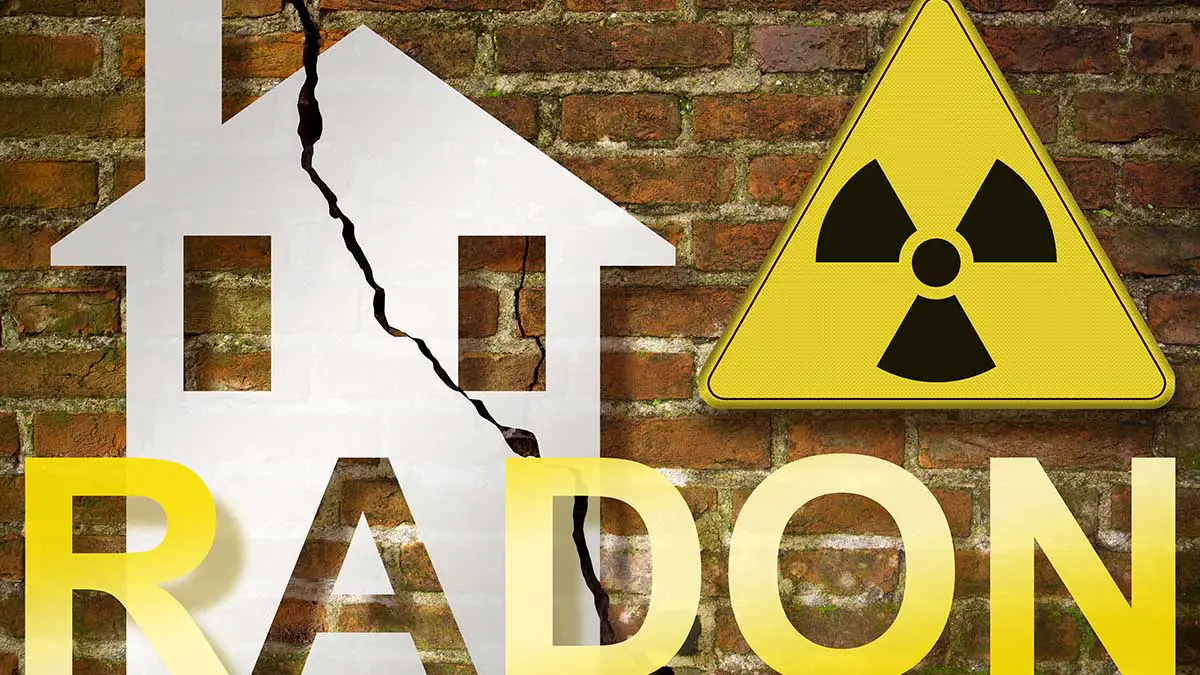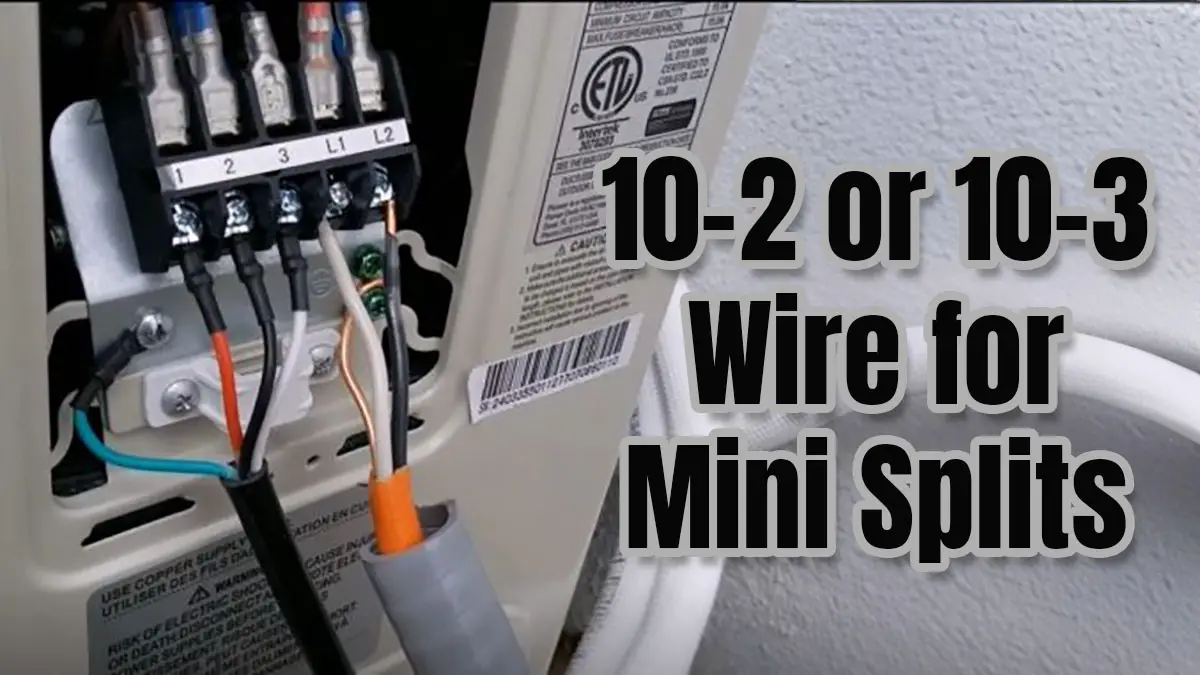Smoke detectors are essential to have in every home, office, or apartment building as they provide a warning system in case of a fire. Unfortunately, smoke alarms can go off for no reason. Smoke detector false alarms are a common problem. Let’s discuss why.
Interference with the internal sensor is the most common reason for a false smoke alarm. A dead battery usually causes a chirping smoke detector and has a red flashing light. False alarms at night often occur between 2:00 AM and 6:00 AM when cool air interferes with the signal strength. Foreign particles such as fumes, smoke, dust, insects, and paint can cause interference in smoke detectors. This interference may trigger false alarms. Smoke alarms over ten years old can trigger a false alarm, signaling it’s time for a replacement.
To stop a false smoke alarm, find the triggered smoke detector and disconnect it. The smoke detector that caused the false alarm will flash a red light and stop the other alarms when unplugged. Next, change the battery and clean the smoke detector before returning it. If the false alarm situation continues, you should replace the faulty detector.
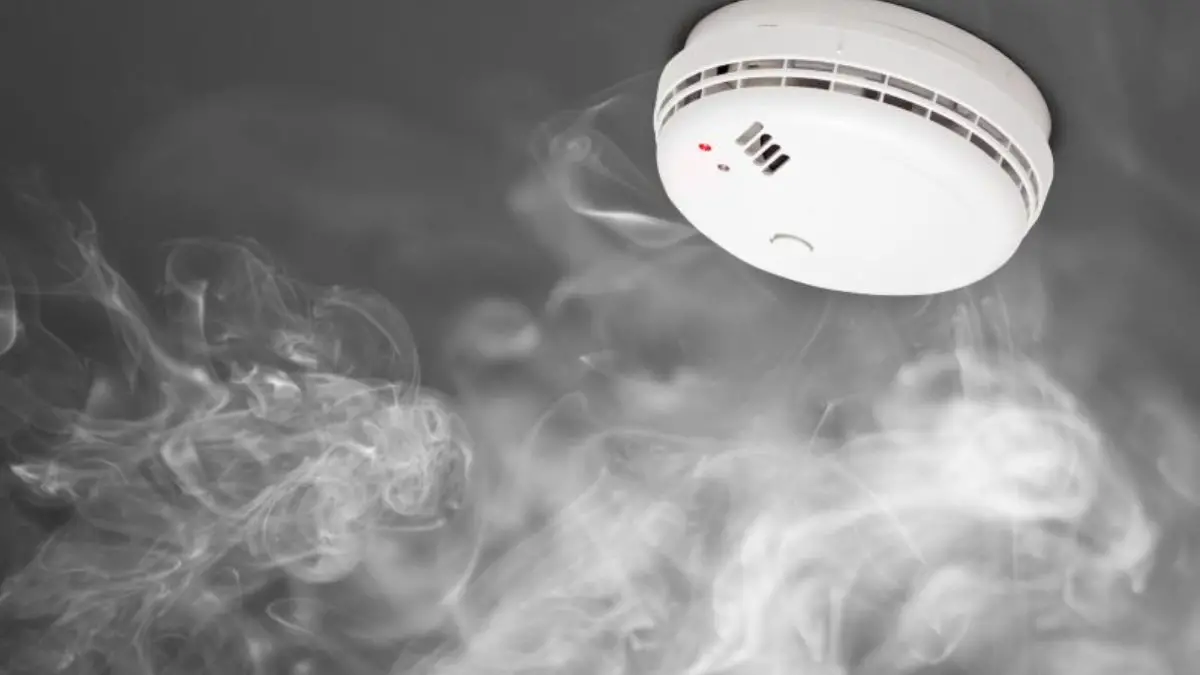
Why Does Smoke Detector Go Off with No Smoke?
If you have noticed that your smoke detectors go off and then stop on their own, there can be several underlying issues causing this problem. The main reason smoke detectors go off by themselves is because they are old.
Smoke detectors last about ten years. If you’ve moved into a home with yellowed smoke detectors, their age might be the problem. If you are unsure how old the smoke detectors are, look at the manufactured date on the back label.
If there is no sticker with dates on it, we recommend replacement. Replacing older smoke detectors is necessary because they can become erratic and sensitive to particles in the air. They might start going off for no reason, or even worse, don’t go off when you need them.
It can be possible that the smoke detector is faulty. Sometimes, smoke detectors can have sensitive smoke sensors. If the smoke detectors are faulty, they might mistake tiny particles for smoke and trigger the alarm. But, the alarm will stop once it no longer detects those particles.
Why Do Smoke Detectors Keep Going Off for No Reason?
A weak battery is the most common cause of false alarms.
When batteries weaken, signal strength interference can occur, causing a chirping alarm. Every 6 months, you need to replace the batteries in fire alarms. These batteries are 9 volts. You choose a quality 9volt battery and replace all the smoke detector batteries.
Newer smoke alarms can have a 10-year lithium battery to combat this problem. When the battery fails, you replace the smoke detector.
Smoke detector wiring may also cause false alarms. The wiring could have a loose wiring connection or a faulty plug. With the power off, check the connections to ensure the wiring is secure. Look at the connector, blow off any debris, and check for broken pins.
Smoke particles from candles, cigarettes, or cigars can trigger a smoke detector.
To prevent this, move candles far from smoke detectors. Smoke outdoors or in a well-ventilated space. Make sure you place your candles away from other flammable materials. Smoke often comes off candles even after blowing them out for several minutes.
To prevent setting off a smoke alarm, smoke or vape outdoors or in a well-ventilated space with a fan or open window.
Be careful using chemicals while deep-cleaning or renovations.
Smoke alarms can react to strong-smelling harsh chemicals used in confined spaces. Examples include bleach or paint thinners and removers. Smoke alarms react to interference caused by strong-smelling chemicals. Open doors or windows when using chemical treatments to ventilate the area. Smoke alarms can go off if they sense detergents or cleaning chemicals nearby.
Cooking can set off smoke alarms even with no smoke present.
Combustion particles from burnt food or spills from overflowing pots during cooking can set off a smoke alarm. Kitchen exhaust fans can help remove combustion particles and expel them outside. Unvented kitchen fans don’t expel combustion particles but do filter them.
Another primary reason your smoke detector can go off without fire or smoke is the high humidity in the room with the smoke detector. High humidity makes the air very moist and dense. Smoke detectors can mistake the dense moisture particles for smoke. Thus, the smoke detector will go off as it senses the air particles and considers them smoke.
Steam can also set off smoke detectors because it contains a heavy moisture content. When someone releases large amounts of steam next to a smoke detector, it can set off the alarm status.
False alarms can occur at night, too.
In the middle of the night, sudden temperature changes can cause a smoke detector to beep or an alarm for a few seconds. During winter nights, the temperature drops a lot, affecting the smoke detector’s battery.
This is also common with smoke alarms installed close to air conditioning vents. When the air conditioning comes on at night, the sudden drop in temperature can cause interference, triggering a false alarm.
Insects collect inside the smoke alarm housing.
Insects are attracted to the heat from inside the smoke alarm housing. Dead insects collect inside the alarm housing over time, which triggers nuisance alarms. The smoke detector has an opening for smoke. Insects, like spiders, can enter the detector and mess with the sensor. Spiders will build webs inside the detector to trap other insects attracted to the heat.
Dust buildup inside the smoke detector housing
Much like insects, dust and grime can build up inside the smoke detector setting off the alarm. As dust settles inside the smoke detector, it can interrupt the signal causing false alarms. Remember to clean your smoke alarms when you change the batteries as part of your routine maintenance.
Dust buildup inside your heating system
Heating systems collect dust particles on the components over the spring and summer. The initial heating startup burns the dust off, which can set off a smoke detector. Getting your HVAC system serviced twice a year can prevent false alarms. This includes cleaning the coils and changing the air filter.
Mold or mildew inside the smoke detector housing
Dust, mold, or mildew can grow inside the alarm housing. Mold and mildew can grow in very humid homes. They can also grow in smoke detectors that are near kitchens or steamy bathrooms. This happens when excessive steam from cooking or showering affects the detector.
Ceiling paint on the smoke alarm housing
People often try to paint around smoke alarms rather than remove them. Painting around a smoke alarm is an amateur mistake. Paint can seep inside the housing, causing false alarms, or, worse, causing the smoke alarm not to work. When paint enters the interior of a smoke detector, it settles on the many small components and sensors, and people can only replace them.
Smoke Detectors Give a False Alarm FAQs
What are the 3 types of smoke detectors?
1. Ionization Detectors: Detect flaming fires by ionizing air, triggering the alarm when disrupted.
2. Photoelectric Detectors: Detect smoldering fires by scattering light and activating the alarm.
3. Dual Sensor Detectors: Combine both technologies for comprehensive protection against various fires.
What smoke detectors do firemen recommend?
Fire safety professionals, including firefighters, generally recommend using dual-sensor smoke detectors because they combine ionization and photoelectric sensor technologies. This dual approach offers the most comprehensive protection as it covers a wider range of fire types — fast-flaming and slow-burning, smoldering fires.
What is the best smoke detector?
Selecting a smoke detector alarm depends on your specific needs. Consider options like Dual Sensor for comprehensive fire detection, Smart Detectors for remote alerts, Interconnected Detectors for larger homes, Photoelectric Detectors to avoid false alarms, 10-Year Battery Detectors for convenience, and Combination Detectors for dual protection.
Which is better, Kidde or First Alert?
Choosing between Kidde and First Alert for smoke detectors and other safety products often comes down to personal preference, specific product features, and individual experiences, as both brands are well-established and highly regarded in the fire safety industry.
Conclusion
Smoke detectors can give false alarms for many reasons, even though their main job is to find smoke from fires. There are many possible causes, such as old equipment or changes in temperature and humidity.
To reduce false alarms, maintain and clean the device, replace the battery, and install it to avoid interference. To avoid unnecessary beeping and keep smoke detectors effective, it’s important to address these issues.


